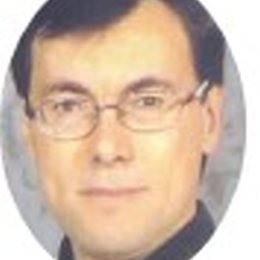The Project NEPIT has 10 vacancy for a Ph.D. researcher to work in the EU Horizon 2020 Marie Skłodowska-Curie Project NEPIT - Network for Evaluation of Propagation and Interference Training. More detailed information on the PhD positions and the objectives can be found on https://nepit.eu/.
Apply now for one of the 10 doctoral candidate positions via our recruitment page https://nepit.eu/recruitment/.
Why DN NEPIT?
DN NEPIT will help you enter the realm of endless possibilities within reverberation chambers, a world where electromagnetic echoes and reflections spark innovation. Join our project to explore the diverse applications of reverberation chambers and be part of a journey where electromagnetic propgation in complex environments meets science, forging new paths in research and unlocking the full potential of reverberation chambers' myriad uses.
The NEPIT project brings together people from academia and industry, experienced researchers and doctoral candidates, theory and practice, simulations and experiments. It is a unique opportunity for each participant to grow together as the project progresses.
The NEPIT project combines theoretical and application-oriented research on electromagnetic compatibility assessment of devices in reverberation chambers with the guiding structure of a doctoral training network including lots of possibilities for key-skill development and personal growth of the participants.
NEPIT is funded by Horizon Europe (HORIZON) through the Marie Skłodowska-Curie Actions (MSCA) Training & Mobility Actions (TMA) in the form of a Doctoral Networks (DN) which will host 10 doctoral candidates across Europe and beyond. The inter/multi-disciplinary characteristics is guaranteed by the presence of five academic beneficiaries (University of Twente, Otto-von-Guericke-Universitaet Magdeburg, Wrocław University of Science and Technology, Università Politecnica delle Marche Eindhoven University of Technology) and one industrial beneficiary (Lumiloop, spin-off company from the Technical University of Dresden) located in four countries (the Netherlands, Germany, Poland and Italy) which possess top class expertise in electromagnetic interference, electronic control, wireless systems, antennas, and propagation.
Furthermore, the inter-sectoral characteristic is guaranteed by the support of a series of industrial entities: ten Industrial partner organisations from five European countries (The Netherlands, Germany, Czechia, Italy and Poland) and even one Industrial partner from Japan. Having Philips Healthcare, Rohde&Schwarz, EVEKTOR, THALES, Telecom Italia, metraTec, National Aerospace Laboratory, Canon Production Printing, Poznanski Instytut Technologiczny, Fokker, Kawasaki Heavy Industries, etc., forms a fully interrelated, integrated, and international consortium.
More recent news
 Thu 5 Feb 2026The Perfect Convergence: My Journey to the NEPIT Project
Thu 5 Feb 2026The Perfect Convergence: My Journey to the NEPIT Project Fri 7 Mar 2025First Network Wide Event (NWE)
Fri 7 Mar 2025First Network Wide Event (NWE) Fri 6 Dec 2024A celebration for Reverberation Chambers with the PhD Defence Danilo Izzo
Fri 6 Dec 2024A celebration for Reverberation Chambers with the PhD Defence Danilo Izzo Fri 1 Mar 2024Launching NEPIT Officially!
Fri 1 Mar 2024Launching NEPIT Officially! Fri 8 Dec 2023DN NEPIT starts recruiting in one week!
Fri 8 Dec 2023DN NEPIT starts recruiting in one week!



